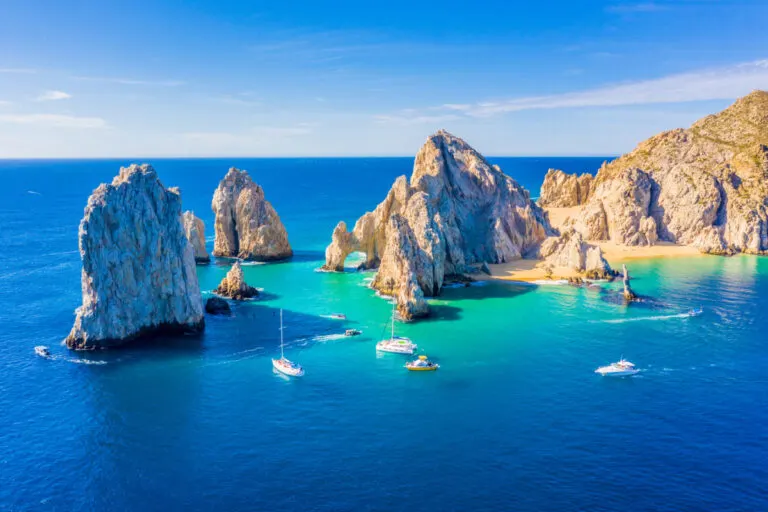We have all been tricked before, but when it happens on vacation it adds to a whole other level of misery.
Many Americans make their way to Mexico’s finest beaches for the time of their lives. For some, it’s an annual getaway. To others, it may be your first time and you may not quite know what to look out for.
Unfortunately, scammers target tourists whether it’s newcomers or well-seasoned travelers who lose count of their passport stamps.
Here are 7 common scams in Mexico’s top beach destinations right now:
How Bad Do You Need Cash?
Los Cabos is among the top 3 most popular beach getaways for U.S. travelers. Although it is widely considered to be a safe destination, there are bad guys everywhere.
Oftentimes, we have to adjust to a new currency when we travel. Mexico is no different. Travelers in need of cash may want be extra careful at ATMs as a growing scam has been occurring in Cabo.
What happens is people will approach offering to assist and then run off with your card likely never to be seen again.

Travel Agency Fraud
Another Cabo scam specialty is the ol’ travel package that never existed. According to many Cabo tourists, they fell victim to a travel agency in the Mexican state of Tamaulipas.
Some victims forked over nearly $3,000 for a trip to Cabo, which isn’t unheard of as it’s one of the premiere luxury destinations.
Refunds were said to be coming after it was announced one of its staffers came down with a severe illness, which caused vacations to be postponed.

However, the money never showed up and the business is now allegedly closed for good.
$3 Bills
Another classic scam that always seem to work somehow is fake currency. Maybe if you’re an expat and have lived in another country long enough, you gain a feel, both literally and figuratively, of how the bills look.
For the average tourist, the odds are in the scammers’ favor. It was recently reported in Puerto Vallarta, another of Americans’ favorite international beach getaways, that many fake bills are circulating in the popular beach city.

Although it was first detected over 20 miles away, Puerto Vallarta is so popular it’s only a matter of time before tourists are affected.
Particularly, the 200 and 500 peso banknotes are the ones raising alarms, which total roughly $11 and $30, respectively.
Fake Tickets
Cancun is the top international destination for American vacationers. In fact, it’s not even close. Cancun is world-renowned for its immaculate resorts and incredible beaches.
Americans are lucky enough to be a short flight away from paradise. Like anywhere else in the world, the good can come with the bad.

One popular sight in the area is the eco-tourism theme park Xcaret, where tourists were recently duped over purchasing fake tickets.
Fake agencies tried taking thousands of dollars from Cancun travelers before they realized what they were buying is not valid.
Hook, Line And Sinker
Travelers need to be extra wary of their emails. Scammers are on the hunt, sending out bait to hook you.
The tactic is known as phishing. The idea is you click a link, type in your password and before you know it, your confidential information has been stolen.

This is very common in the travel industry where emails (and social media messages) will look almost identical to familiar name brands for cruises, hotels and airlines.
The latest reports show Cancun as a major target.
Cheap Bling
One of the most popular areas outside of Cancun is the gorgeous Isla Mujeres. Americans have fallen in love with this quaint tropical paradise.
Despite how much they love it, some are feeling tricked when perusing local shops. Some have spent a pretty peso on jewelry that hasn’t turned out to be what they wanted.

Complaints are a mixed bag of unpleasant salesmen, fake jewelry, and broken stones falling out of place.
Real Pirates, Fake Tours
Outside stunning Playa del Carmen is the popular island of Cozumel. Whether arriving by cruise or air, tourists love going on tours to see what Cozumel is all about.
Unfortunately, some tours that have been advertised don’t exist. Known as ‘Pirate Operators’, these con artists are selling snake oil to vacationers.
Typically, the schtick is harassing people until they give in only to later realize there is no exciting tour to go on. It’s been said many speak fluent English, which adds to the allure that you can trust them.

Credit: Source link

